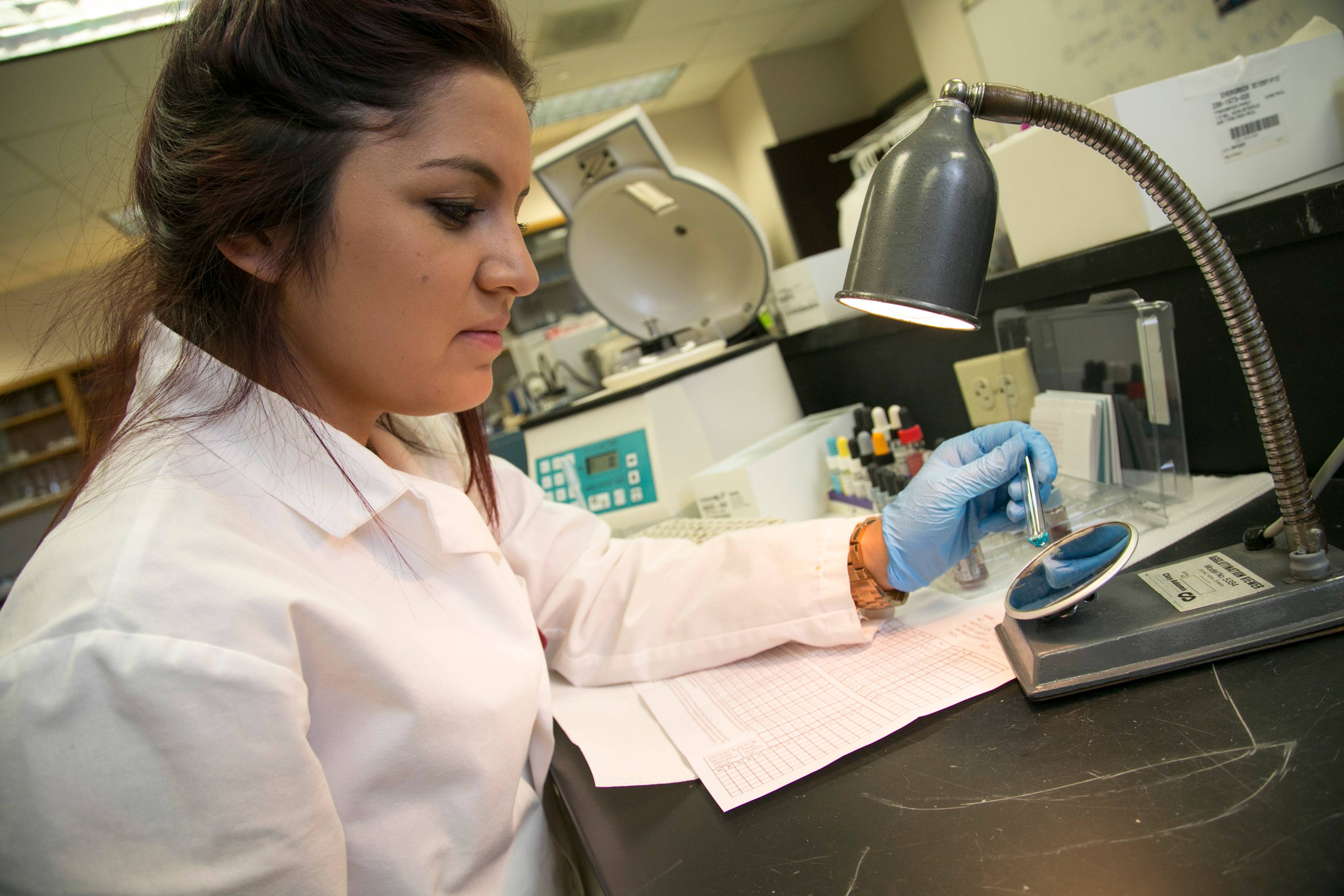Blood Bank Checklist

Immunohematology Clinical Rotation
Objectives, Expectations, and Competency Checklist
BLOOD BANK COMPETENCY CHECKLIST
OBJECTIVES:
After completing coursework and this clinical experience, the MLS student will be able to:
- Select the appropriate specimen, the method of handling and storage for:
- Routine serologic and compatibility testing
- Newborns and pediatric patients
- Elective surgical patients
- Emergency and crisis patients
- Patients with cold antibodies
- HDN exchange transfusion patients
- Obstetrical patients to evaluate antibody titer
- Multi-transfused patients
- Use and maintain an adequate record keeping system
- Maintain, and correctly interpret a comprehensive quality control system for all phases of the blood bank.
- Perform and correctly interpret:
- ABO grouping
- Rho(D) typing
- Rho(Du) variant typing
- Antibody screening using various techniques and temperatures
- Antibody identification
- Compatibility testing
- Autologous compatibility testing
- Evaluate candidates for Rh immune globin
- Participate in maintaining:
- Reagent supply and inventory control program
- Blood component supply
- Effective blood utilization policies
- Read and review the procedure manual.
- Perform and correctly interpret direct antiglobulin test.
- Select appropriate blood for transfusion:
- Pediatric patients
- Multitransfused patients
- In the presence of unexpected antibodies
- In the absence of the patient’s own blood type
- Small multiple volume transfusions
- Autologous transfusions
- Directed donations
- Advise healthcare personnel as to the appropriate component:
- Cryoprecipitate
- Red Cells
- Fresh frozen plasma
- Prepare leukocyte-poor red blood cells
- Frozen blood
- Platelets (random and apheresis)
- Coagulation factor-rich components
- Identify the adverse effects of blood transfusion:
- Investigate all suspected reactions
- Follow a protocol for follow- up of reported reactions
- Function in a blood-collecting facility:
- Screen potential blood donors
- Perform all required laboratory tests
- Prepare components
- Maintain donor records
13. Observe proper security involving confidential patient or donor information as directed by medical ethics.
EXPECTATIONS (of Texas State MLS students)
- Review the objectives for the Blood Bank rotation before you go on the rotation (and, it doesn’t hurt to take them with you to check off what you’ve done or haven’t done).
- Take your Immunohematology textbook with you and use it when you’re looking up information about specific tests; have a notebook handy to jot down important things so you don’t have to be told more than once.
- Review the Immunohematology modules in MedTraining.
- If you haven’t notified your rotation site, be sure to do so early to let them know you are coming and to find out what time you are to be there, where to park, uniform/lab coat requirement, and any other concerns you have.
- Be ON TIME, wear your scrubs if you have them (you can also take a lab coat, but many places will provide that), take your student TX State name tag, student handbook/review book, notify your lab contact and us if you are not going to make it because of sickness, emergency, etc.
- ON THE JOB-Observe universal precautions at all times; be attentive and proactive in your learning; ask if you don’t understand something but try not to “nag” (in other words, you shouldn’t have to ask “does this test require serum, plasma, or whole blood” 5 times J. Show interest and enthusiasm; do not get caught up in lab/office politics/personnel feuds/etc.
- Every clinical site is a little different; try to be intuitive with the “workflow” and culture of the lab; you only have an opportunity to be there 3 weeks so try to fit in
- This is YOUR opportunity to network with future employers and all of our sites communicate with each other about you and your peers….so, treat this like a 3-week interview!
- Learn from the different MLS and MLT professionals that you are around. Many of them have years of practical experience and “tricks of the trade” that are hard to show in a teaching lab on campus.
- Do not be afraid of repetition. The more experience you have with chemistry instrumentation and evaluating quality control data, the better. This is important. It will help you on your rotation exam and on your certification exam.
- Stay for the entire “shift”; be courteous and grateful to our clinical sites as we rely on them for future rotation; YOU are representing not only yourself but TEXAS STATE and the MLS program.
